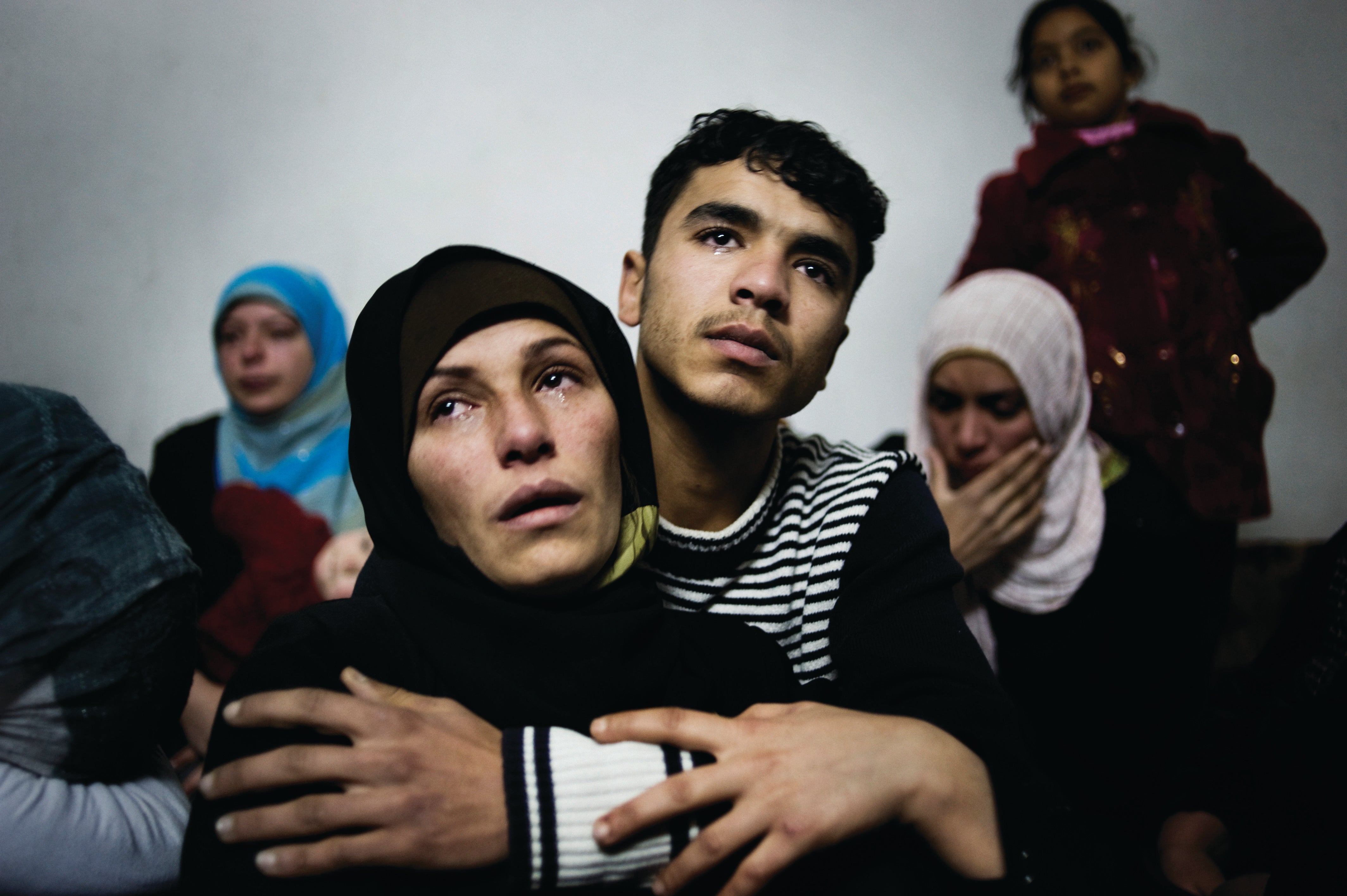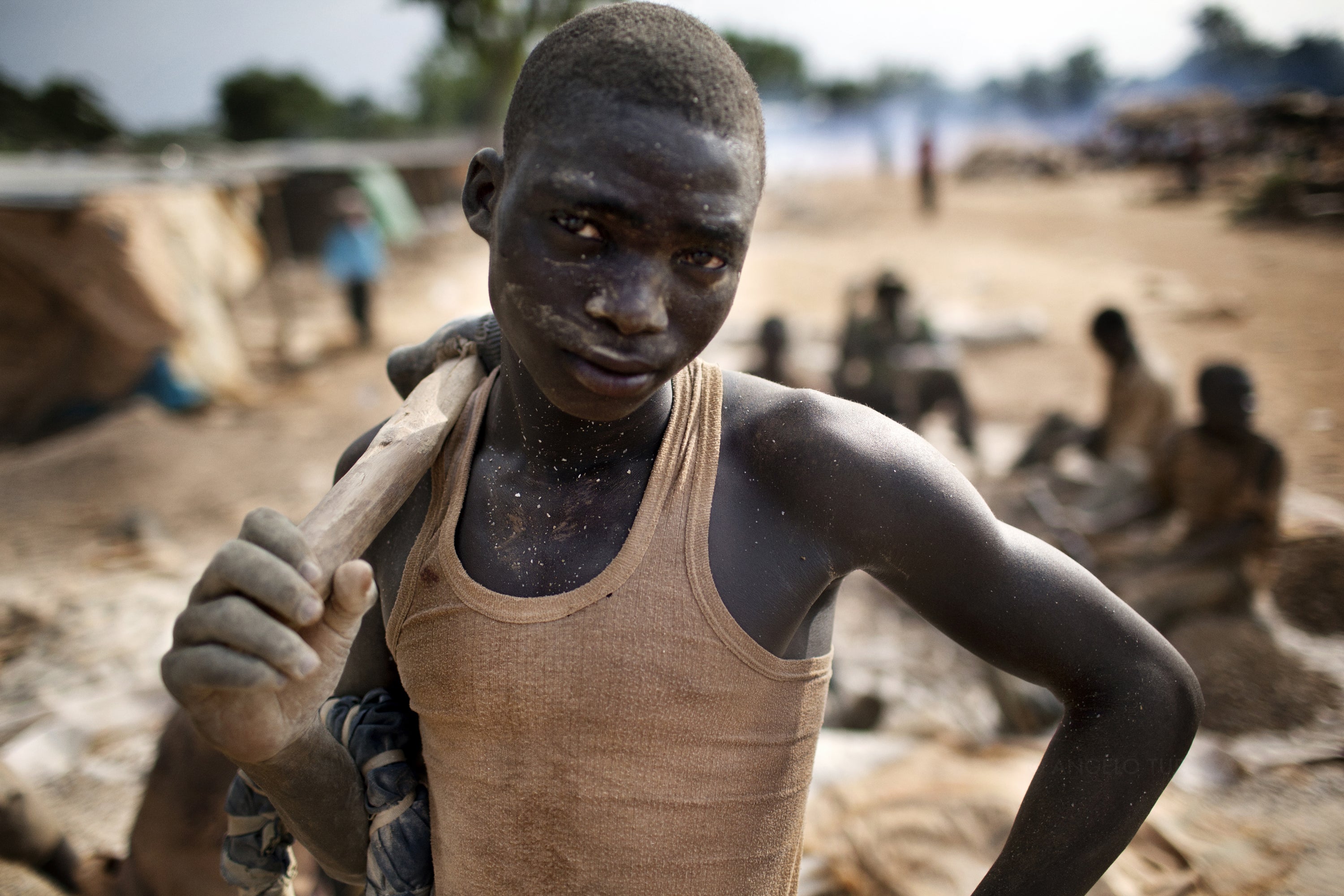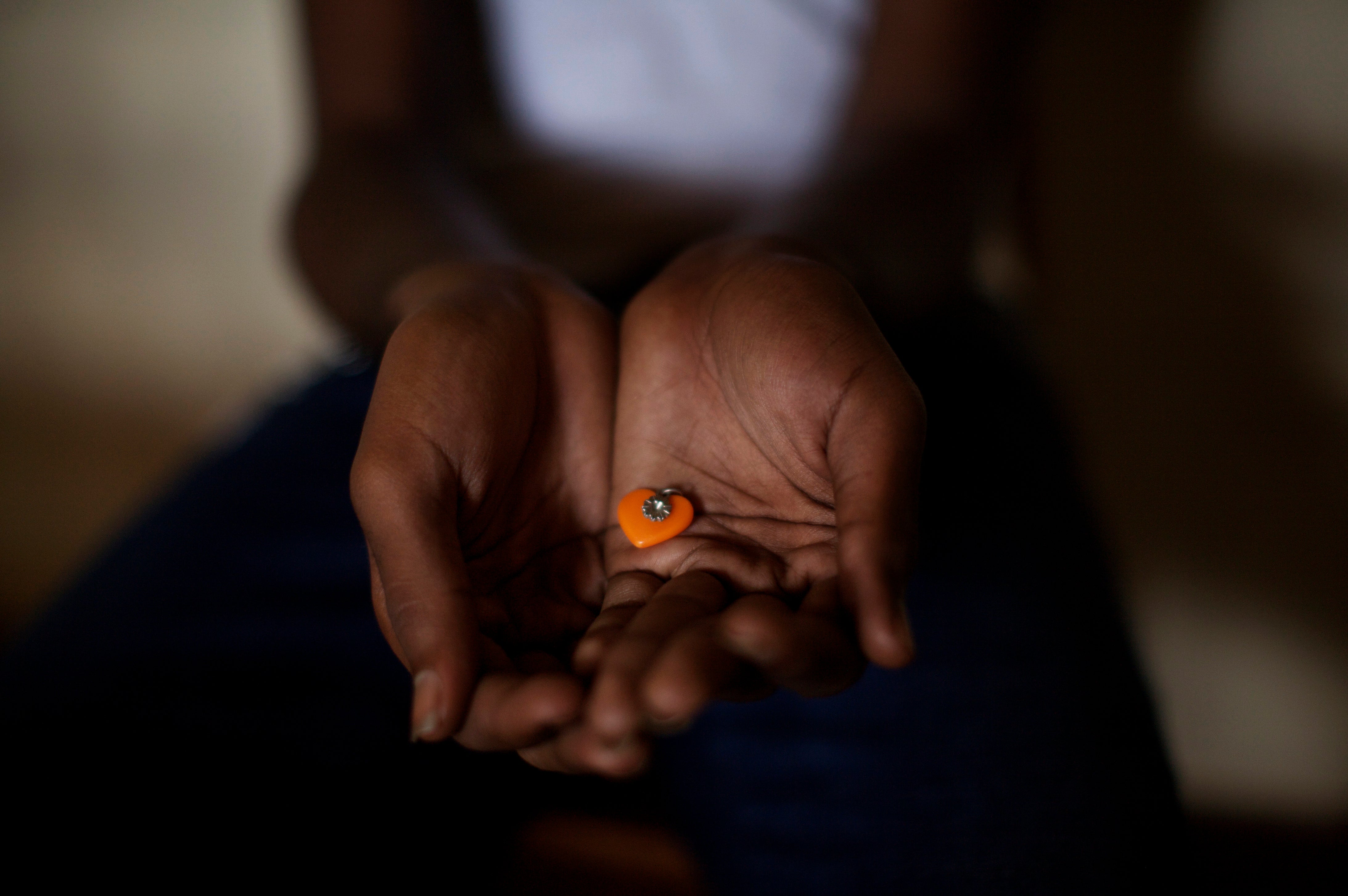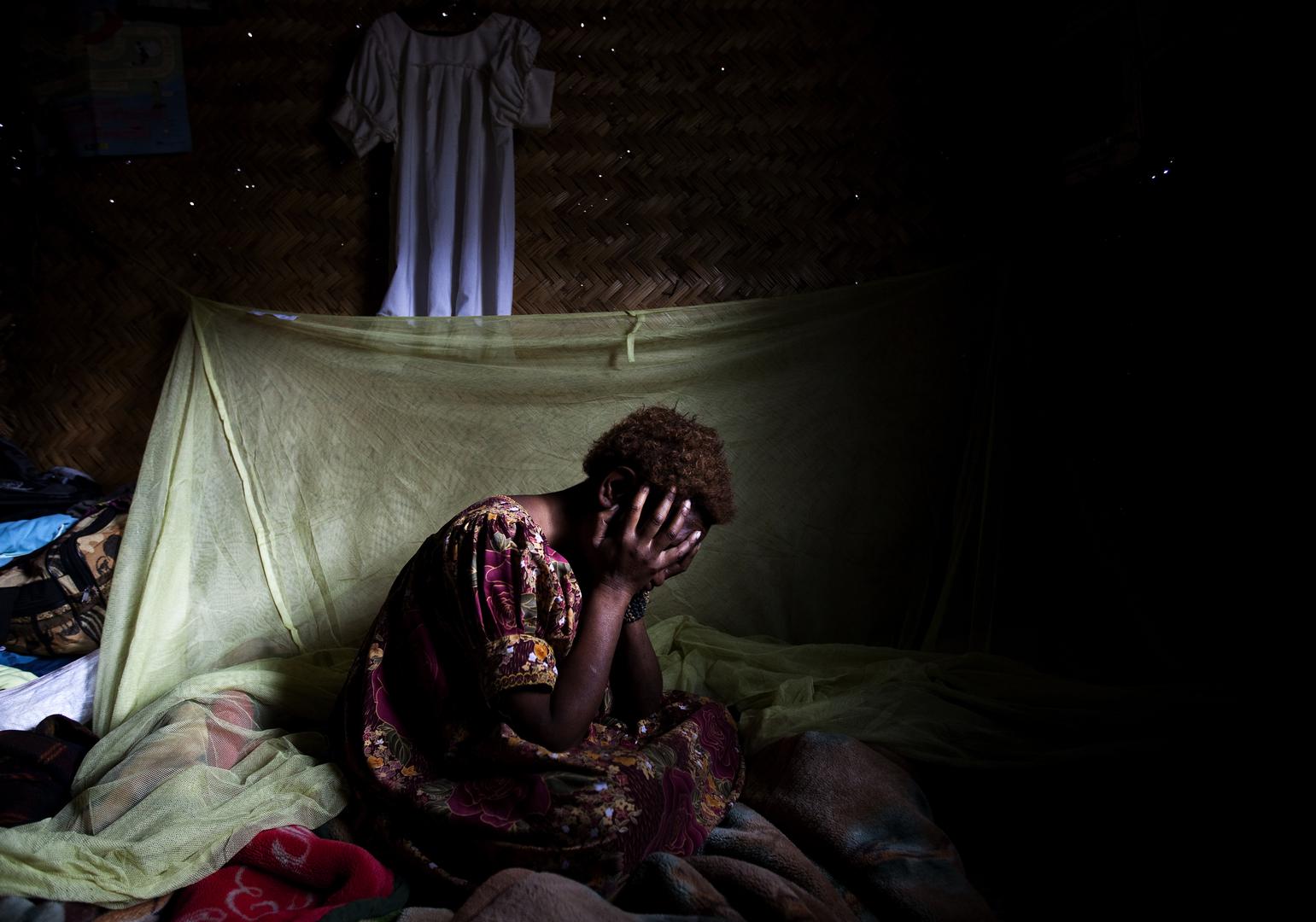State security forces and Congolese and foreign armed groups committed numerous and widespread violations of the laws of war against civilians in eastern and northern Democratic Republic of Congo (Congo).
In late 2011, opposition party members and supporters, human rights activists, and journalists were threatened, arbitrarily arrested, and killed during presidential and legislative election periods.
Gen. Bosco Ntaganda, sought on arrest warrants from the International Criminal Court (ICC) for war crimes and crimes against humanity, defected from the army in March and started a new rebellion with other former members of the National Congress for the Defense of the People (CNDP), a rebel group integrated into the army in early 2009. The new M23 rebel group received significant support from Rwandan military officials. Its fighters were responsible for widespread war crimes, including summary executions, rapes, and child recruitment.
As the government and military focused attention on defeating the M23, other armed groups became more active in other parts of North and South Kivu, attacking civilians.
Abuses during National Elections
Presidential and legislative elections in November 2011 were characterized by targeted attacks by state security forces on opposition party members and supporters, the use of force to quell political demonstrations, and threats or attacks on journalists and human rights activists.President Joseph Kabila was declared winner of the November 28, 2011 election, which international and national election observers criticized as lacking credibility and transparency.
The worst election-related violence was in the capital, Kinshasa, where at least 57 opposition party supporters or suspected supporters were killed by security forces—mostly Kabila’s Republican Guard—between November 26 and December 31.
Human Rights Watch received credible reports of nearly 150 other people killed in this period, their bodies reportedly dumped in the Congo River, in mass graves on Kinshasa’s outskirts, or in morgues far from the city center. Scores of people accused of opposing Kabila were arbitrarily detained by Republican Guard soldiers and the police. Many were held in illegal detention centers where they were mistreated and some were killed.
Abuses against opposition supporters also occurred in other areas, including North and South Kivu, Katanga, and the Kasai provinces. In some areas, soldiers and militia members backing Kabila used intimidation and force to compel voters to vote for certain candidates.
War Crimes by M23 Rebels
In March, General Ntaganda, the former rebel who had become a general in the Congolese army, defected from the army with several hundred former members of the National Congress for the Defense of the People (CNDP) rebel group. Ntaganda’s troops forcibly recruited at least 149 people, including at least 48 children, in Masisi, North Kivu, in April and May. The mutiny began soon after the government indicated that it was planning to deploy ex-CNDP soldiers outside of the Kivus. A parallel military structure had been established in the Kivus with troops loyal to Ntaganda responsible for targeted killings, mass rapes, abductions, robberies, and resource plundering.
Soon after Ntaganda’s mutiny was defeated by the Congolese army in April, other former CNDP members led by Col. Sultani Makenga launched another mutiny in Rutshuru territory, North Kivu. Ntaganda and troops loyal to him joined this new rebellion, which called itself the M23 after the March 23, 2009 peace agreement between the Congolese government and the CNDP.
From its start, the M23 rebellion received significant support from Rwandan military officials, including in the planning and command of military operations and the supply of weapons and ammunition. At least 600 young men and boys were recruited by force or under false pretenses in Rwanda to join the rebellion. Demobilized fighters, Congolese refugees, and other men and boys were recruited by neighborhood chiefs and Rwandan army officers. Rwandan soldiers then escorted them across the border to Congo, where they were trained to fight in camps led by Rwandan military officers. Several hundred Rwandan soldiers were deployed to Congo to support the M23 in their military offensives, helping the rebels gain control of much of Rutshuru territory.
In mid-November, M23 rebels launched another offensive with support from the Rwandan military and took control of Goma, the provincial capital, and the town of Sake. On December 1, M23 withdrew most of its forces from Goma and Sake, after the Congolese government said it would negotiate with them.
M23 fighters were responsible for widespread war crimes, including summary executions, rapes, and child recruitment. At least 33 new recruits and other M23 fighters were executed when they attempted to flee. Journalists and human rights activists who documented or spoke out against the M23’s abuses received death threats. M23 fighters attempted to rape a human rights activist in Rutshuru and told her they were targeting her because of her work. When she tried to flee, they shot her in the leg.
Attacks on Civilians by Other Armed Groups
The Democratic Forces for the Liberation of Rwanda (FDLR), a predominately Rwandan Hutu rebel group some of whose members took part in the 1994 genocide in Rwanda, and other Congolese armed groups increased their military activities, taking advantage of rising ethnic tensions and the security vacuum created by the army’s focus on the M23.
Some of the most intense fighting was between the Congolese armed group Raia Mutomboki (meaning “outraged citizens” in Swahili), the FDLR, and their allies. Hundreds of civilians were killed in Masisi, Walikale, Kalehe, and Shabunda territories in North and South Kivu, as each side accused the local population of supporting its enemies.
The M23 sought to ally with some of the other armed groups, providing them with periodic or sustained support, including weapons and ammunition, and on occasion organizing coordinated attacks.
Abuses by the Lord’s Resistance Army
The Lord’s Resistance Army (LRA), a Ugandan rebel group with a long record of atrocities, continued to attack civilians in northern Congo and eastern Central African Republic. Local activists reported 273 LRA attacks between October 2011 and October 2012, in which at least 52 civilians were killed and 741 others abducted. About half of those abducted were released after three days. The LRA’s three senior leaders sought on arrest warrants from the ICC—Joseph Kony, Odhok Odhiambo, and Dominic Ongwen—remain at large.
Justice and Accountability
Appeal hearings began in the trial of those accused of the assassination of human rights activist Floribert Chebeya and the disappearance of his driver Fidèle Bazana in Kinshasa in June 2010. In June 2011, the deputy head of special police services Colonel Daniel Mukalay, and three fugitive police officers were sentenced to death. Another defendant was sentenced to life imprisonment. General John Numbi, the former police chief who was implicated in the murder, has not been arrested and apparently not seriously investigated.
On October 4, 2011, seven humanitarian workers of the Banyamulenge ethnic group were killed near Fizi, South Kivu province, in an ethnically motivated attack by Mai Mai Yakutumba fighters. Despite pledges from the authorities to bring to justice those responsible, one year later no one had been arrested in connection with the attack.
On December 2, 2011, judicial authorities opened an investigation into election-related violence on November 26 and 28, 2011. One year later, the investigation has made little progress. In late 2011 and early 2012, government officials and security forces attempted to cover up evidence, denied access to hospitals and morgues to human rights activists, and intimidated witnesses and family members of the victims.
The ICC issued its first-ever conviction and sentenced, in July, Congolese armed group leader Thomas Lubanga to 14 years in prison for recruiting and using child soldiers in Ituri district in eastern Congo in 2002 and 2003. The evidence phase of the trial of Mathieu Ngudjolo and Germain Katanga, leaders of an armed group that opposed Lubanga’s group in Ituri, was completed in May.
Ntaganda, Lubanga’s co-accused at the ICC, remained at large at this writing. Ntaganda has been wanted by the ICC since 2006 for recruiting and using child soldiers, crimes which he continued to commit in 2012. In July, the court issued a second warrant against him for war crimes and crimes against humanity, also in connection with his activities in Ituri.
In July, the ICC indicted Sylvestre Mudacumura, the FDLR’s military commander, for war crimes; he remained at large at this writing. Two FDLR political leaders, Ignace Murwanashyaka and Straton Musoni, were on trial in Germany on charges of war crimes and crimes against humanity.
There was little progress on the government’s proposal to establish a specialized mixed court with jurisdiction over war crimes and crimes against humanity committed since 1990 and on the adoption of legislation implementing the ICC statute. In September, the justice minister pledged to adopt the ICC implementing legislation promptly. In October, she took initial steps to revive draft legislation on the specialized mixed court.
Key International Actors
In late 2011, the United States deployed 100 special forces personnel to the LRA-affected region as military advisers to regional armed forces carrying out operations against the LRA. In March, the African Union announced a regional cooperation initiative to strengthen efforts to combat the LRA, including deploying a 5,000-member regional task force.
In August 2012, the US Security and Exchange Commission (SEC) adopted a rule mandated by the Dodd-Frank Wall Street Reform and Consumer Protection Act requiring companies to publicly disclose their use of conflict minerals originating from Congo or neighboring countries. On October 19, the US Chamber of Commerce and National Association of Manufacturers sued to have the rule modified or set aside in US federal court.
In September, US President Barack Obama announced that the US was withholding foreign military financing from Congo for a second year because of the army’s continued recruitment and use of child soldiers. The administration also announced that the US would not train a second army battalion until Congo signed a UN action plan to end its use of child soldiers. The Congolese government signed the plan on October 4.
Several foreign governments and intergovernmental organizations, including the UN Security Council, denounced M23 abuses and called for those responsible to be brought to justice. In June, the UN high commissioner for human rights identified five senior M23 leaders as “among the worst perpetrators of human rights violations in the DRC, or in the world.”
A UN group of experts monitoring the arms embargo and sanctions violations in Congo presented detailed evidence of Rwandan military support to the M23 rebels in an addendum to its interim report in June and in its final report in November. Its final report also included evidence that Uganda’s security forces were supporting M23.




